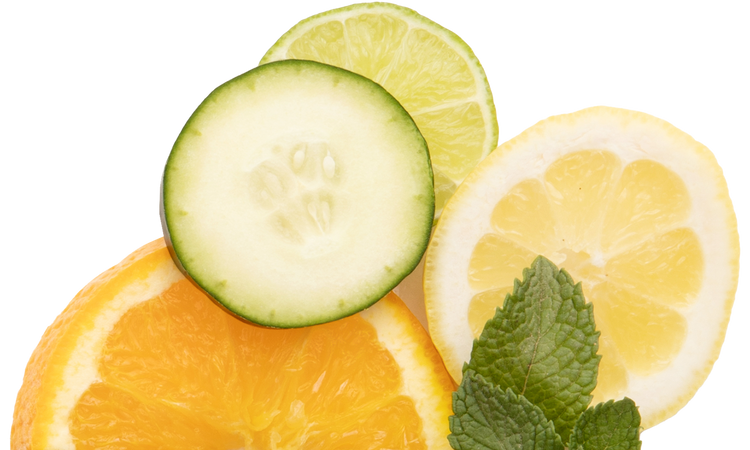Vegan or vegetarian? You've probably heard both terms tossed around quite a bit, especially if you're exploring healthier lifestyle options.
What's the difference between the two? Which one is healthier? How are they alike? How do they differ?
These are just some of the questions I get asked as a holistic nutritionist working in the health and wellness space.
My goal here is to explain the unique characteristics of each, so you can make informed and conscious choices on what’s best for you, so let’s dive in...
Veganism
Veganism is a lifestyle choice that embraces the philosophy of no harm to animals. This philosophy was started by The Vegan Society about 80 years ago [1]. Not only is practicing veganism a dietary lifestyle, but it is a choice to promote animal welfare.
Vegans commit to a diet that excludes all animal products, including red meat, poultry, eggs, dairy, fish, gelatin, and honey.
Instead, vegans adhere to a plant-based diet, eating a variety of fruits, vegetables, beans, legumes, nuts, seeds, and whole grains.
It’s important to note that just because you follow a vegan diet, it does not mean it's a healthier route. Most vegan foods, like meat substitutes and other plant-based options, are highly processed with seed oils, gums, additives, and other synthetic ingredients that are simply not healthy.
Vegetarianism
Vegetarianism dates back to ancient civilizations, most popularly in Eastern cultures and religions, but has also spread to Western culture today.
The philosophy is similar to veganism in the sense that vegetarians wish to limit as much harm to animals as possible because it is believed that animals have a soul.
While there are different types of vegetarian diets, most still eat animal-derived products like milk, butter, eggs, and cheese. They have high reverence for these animal foods, but like vegans, also eat a variety of fruit, veggies, beans, legumes, nuts, seeds, and a variety of carbs like healthy whole grains.
Vegetarians do not eat fish, red meat, or poultry.
What Sources Of Protein Do Vegans and Vegetarians Eat?
It’s no secret that The Standard American Diet is animal protein-heavy. As a result of that, a question I am frequently asked is, “Where do you get your protein from?”
Protein has practically been forced down the throats of Americans nationwide. Protein shakes for breakfast, high-protein snacks in between, and you guessed it, high-protein chicken and broccoli for lunch.
Protein is an important macronutrient, but you do not need THAT much protein. Nor do you need to consume animal by-products. You could get plenty of protein and other essential nutrients from whole, real plant-based foods. No, I am not talking about highly processed pea-protein powders or protein supplements here.
To answer the question, both vegans and vegetarians get their protein from plants, nuts, and seeds. Lentils, chickpeas, peanuts, cashews, and pumpkin seeds are just some examples. Unlike vegans, vegetarians do consume dairy products, like butter, milk, eggs, and cheese as a source of protein along with beans and legumes.
Real Plant-Based Protein
If you’re currently a non-vegetarian who is considering going vegan or vegetarian you may be concerned about your protein intake.
As the holistic nutritionist at Raw Generation and being mostly plant-based myself, I knew I needed to create a high-protein vegan and vegetarian option for this very reason.
That’s where the Meal Replacement Pack was born. It has 16g of protein per bottle in fan-favorite flavors like Vanilla Protein & Chocolate Protein.
Not only is it cleaner than other options on the market, but it is also rich in essential nutrients,like Vitamin B-12 from pumpkin seeds, Vitamin D from cashews, as well as calcium from almonds.
Each ingredient was chosen with a purpose—to flood your system with real nourishment.
Health Benefits of Eating Plants
Whether you’re a vegan or on a vegetarian diet, increasing your daily intake of fruit and vegetable carbohydrates is always a good thing.
People who go vegan or vegetarian often:
-
Lose Weight - A healthy diet full of fruits and vegetables means more fiber. More fiber means a regular flow and healthy metabolism. Weight loss is a direct result of this.
-
Flood The Body With Nutrients - Eating a variety of fruits and vegetables means a diverse portfolio of nutrients, like vitamin C, potassium, folate, and several antioxidants which are important for optimal health.
-
Have a Lower Risk of Chronic Disease - Many people turn to veganism and vegetarianism for health reasons. And studies can prove that a healthy plant-based diet full of fruits and vegetables can reduce health conditions, such as high blood pressure and high cholesterol, the risk of heart disease, type 2 diabetes, cardiovascular disease, and obesity [2].
-
Have More Peace of Mind - If animal welfare is a concern of yours both veganism and vegetarianism refrain from the use of animal products entirely, so you can experience healthy eating in good conscious.
Something for Everyone
It doesn’t matter if you eat animal-based, vegan, vegetarian, pescatarian, flexitarian, or semi-vegetarian, Raw Generation has something for anyone wanting to introduce a variety of whole foods into their diet.
Our juices and smoothies provide raw nutrition that can support anyone looking to make healthier choices.
We prioritize using clean, real ingredients found in nature. We never use synthetic ingredients, unlike other plant-based companies.
Experience the benefits of raw plant-based nutrition with every bottle of cold-pressed juice and smoothies.
Experience Raw Plant-Based Nutrition
Sources:


